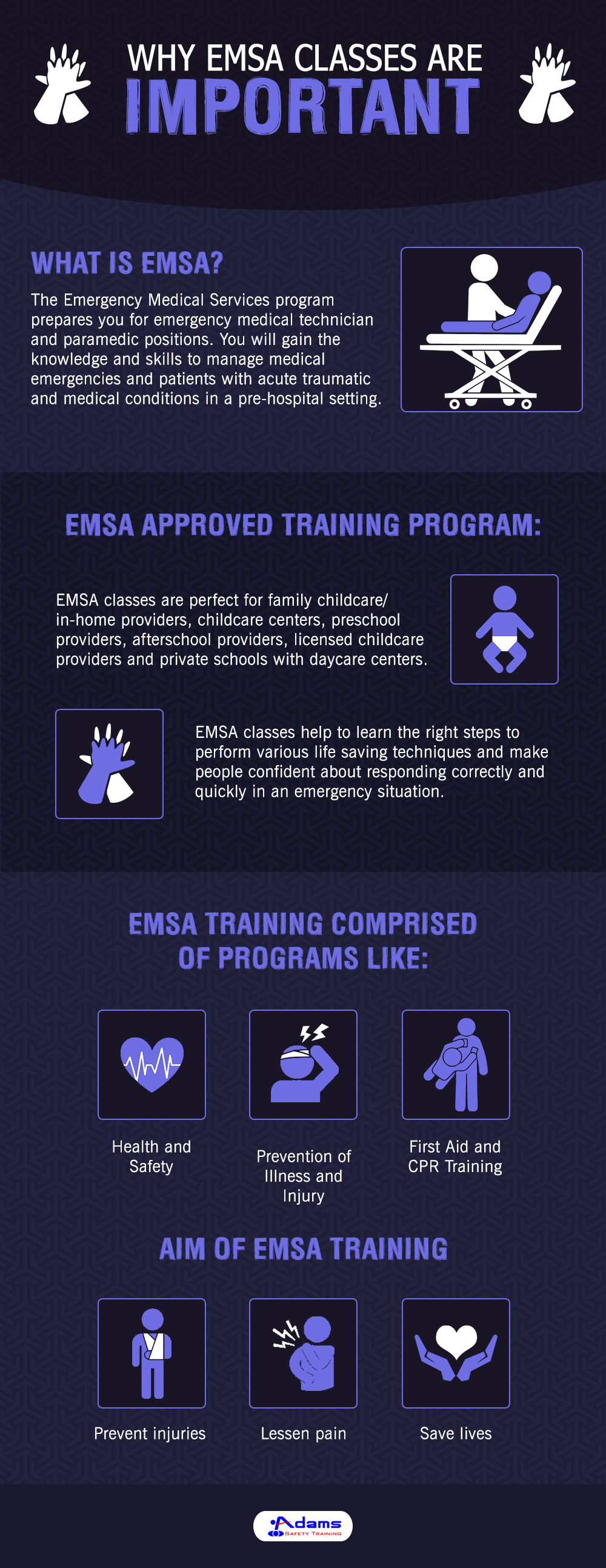We are authorized by the California Emergency Medical Services Authority (EMSA) to provide training in preventive practices: Realization, governance, and prevention of infectious diseases, including immunizations, and control of childhood injuries.
What is EMSA Training?
EMSA Training takes care of all emergency situations that are often faced by individuals who look after infants and small children. Authorized classes are of 16 hours. It is divided into:
1)First Aid and Pediatric CPR – 4 Hour each
The classes underline First-Aid preparedness. Children, especially infants, may need extra care when administrating First-Aid, specifically CPR. Adding-on, the classes also teach care providers that children with a chronic medical condition should be treated in a proper manner.
2)Preventive Health and Safety practices- 8 Hours
The curriculum adds training in sanitary food handling, emergency preparedness and evacuation, care for differently-abled children, identification of symptoms of child abuse, and child nutrition. This can be defined as
1.Infection Control Policies & Procedures
2.Immunization Laws & Recordkeeping
3.Nutrition and the Childcare Food Program
4.Injury Prevention
5.Quality Care in Early Childhood
6.Cultural Sensitivity in Childcare
7.American with Disabilities Act in the Childcare
8.The Preventive Health Practices
Who should go for this training?
Childcare Provider Administrators & Daycare Owners
Privately owned daycare owners that leave staff unattended are required by law to get those staff members EMSA Safety Certified.
What does EMSA do to ensure child care professionals are properly trained?
EMSA carries out inspections in Maritime Education and Training (MET) Institutions of the Member States and Third Countries. The main idea is to confirm the method that the organizations are executing:
Standards of Training, Certification, and Watchkeeping (STCW)
Convention (quality of systems and procedures)
Human resources and equipment.
The inspections not only ensure the STCW standards are properly applied but also enable the organizations to identify areas that require modifications.



